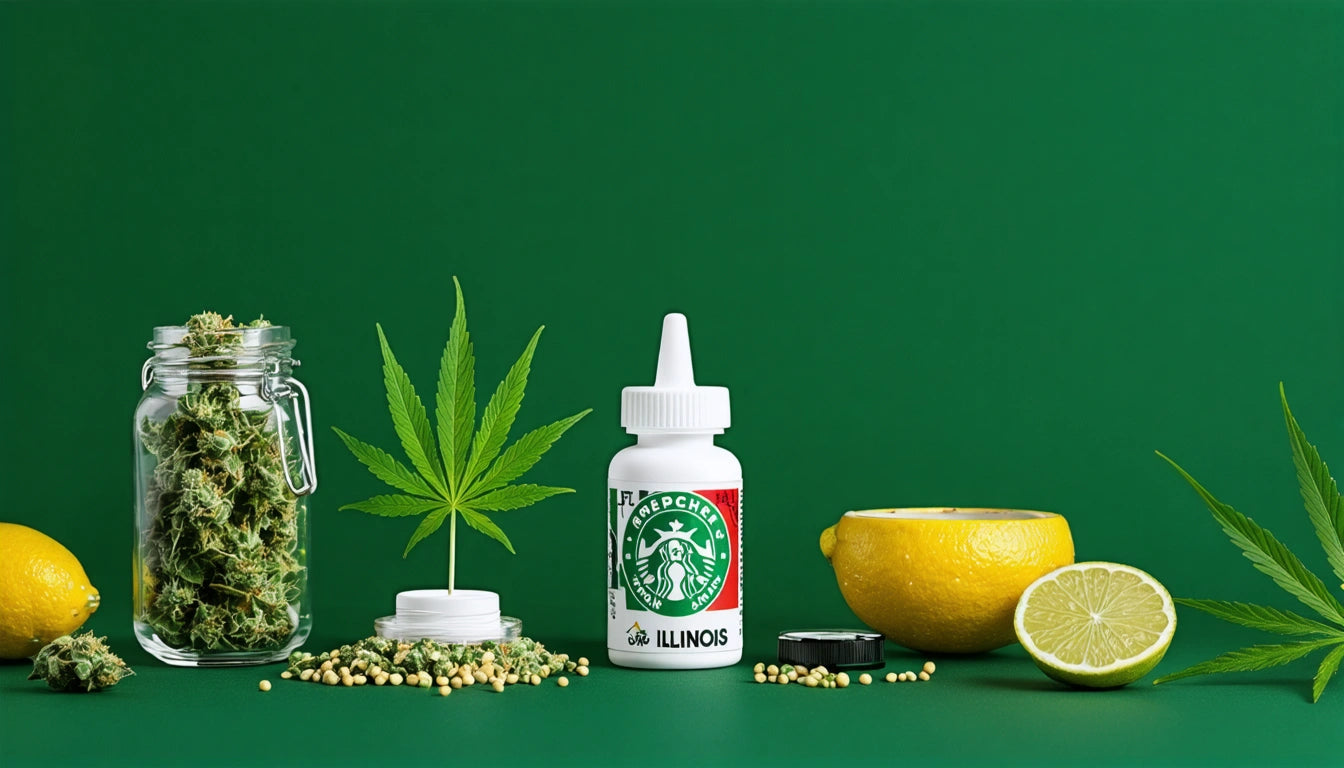Table of Contents
Illinois Cannabis Legalization: Key Dates, Public Use, and Regulations
Illinois made history as the first state to legalize recreational cannabis through legislative action rather than by ballot initiative. Understanding when weed became legal in Illinois and the regulations surrounding its use is essential for residents and visitors alike. This comprehensive guide covers the key dates, public consumption rules, and important regulations that shape the cannabis landscape in the Prairie State.
Illinois Cannabis Legalization Timeline
The journey toward cannabis legalization in Illinois followed a gradual path:
- 2013: Illinois approved medical cannabis through the Compassionate Use of Medical Cannabis Program Act
- June 25, 2019: Governor J.B. Pritzker signed the Cannabis Regulation and Tax Act (CRTA) into law
- January 1, 2020: Recreational cannabis sales officially began in Illinois
When did Illinois legalize weed? The definitive answer is June 25, 2019, when the legislation was signed. However, when weed became legal in Illinois for recreational purchase and possession was January 1, 2020. This distinction is important as it represents the gap between legislative approval and actual implementation.
Recreational Cannabis Regulations in Illinois
Illinois established clear parameters for legal cannabis use. Understanding cannabis laws in Illinois is crucial for compliance. Current regulations include:
Possession Limits
- Illinois residents (21+): Up to 30 grams of cannabis flower, 5 grams of concentrate, or 500mg of THC in cannabis-infused products
- Non-residents (21+): Up to 15 grams of cannabis flower, 2.5 grams of concentrate, or 250mg of THC in cannabis-infused products
These limits are strictly enforced, and exceeding them can result in legal consequences. For businesses managing inventory, secure storage solutions like heavy-duty mylar bags have become essential for maintaining compliance with state regulations while preserving product freshness.
Home Cultivation
Currently, only registered medical cannabis patients may grow cannabis at home, with a limit of five plants per household. Recreational users are not permitted to grow their own cannabis.
Public Consumption Rules in Illinois
A common question is: can you smoke weed in public in Illinois? The short answer is no. The Cannabis Regulation and Tax Act prohibits consuming cannabis in public spaces, including:
- Streets and parks
- Schools and school grounds
- Government buildings
- Any public place where smoking is prohibited under the Smoke Free Illinois Act
Additionally, consumption is prohibited in motor vehicles and on private property if it would be visible to the public. Some municipalities have approved cannabis lounges or consumption spaces, but these remain limited.
Special Venue Considerations
For those wondering, can you smoke in Illinois casinos? Again, the answer is no. Casinos fall under the Smoke Free Illinois Act, which prohibits smoking of any kind, including cannabis. Violators may face ejection from the premises and possible legal penalties.
Employment and Professional Considerations
Despite legalization, employers in Illinois can still maintain drug-free workplace policies and test for cannabis. The law does not require employers to accommodate cannabis use, and termination for failing a drug test remains legal in most circumstances.
Law Enforcement Personnel
A frequently asked question is: can cops smoke weed in Illinois? Law enforcement agencies typically maintain strict policies prohibiting cannabis use by officers, even when off-duty. This is because:
- Cannabis remains federally illegal
- Officers must carry firearms, and federal law prohibits firearm possession by users of controlled substances
- Departments require officers to maintain judgment unimpaired by substances
Similar restrictions apply to other professions requiring federal clearances or operating under federal regulations.
Illinois Compared to Neighboring States
Illinois stands in contrast to many of its neighbors regarding cannabis policy. While Illinois has embraced recreational legalization, Indiana maintains strict prohibition, and Iowa has only a limited medical program. This disparity creates significant legal risks for those crossing state lines with cannabis products.
This regional variation is part of a broader national pattern documented in comprehensive timelines of cannabis legalization across the United States. Each state has developed its own approach and timeline for cannabis reform.
Future Outlook for Illinois Cannabis Laws
The cannabis regulatory landscape in Illinois continues to evolve. Potential future developments include:
- Expansion of home cultivation rights to recreational users
- Licensing more dispensaries to improve access
- Creating more designated consumption spaces
- Addressing social equity concerns in the cannabis industry
As with other states considering or implementing legalization, Illinois policymakers must balance public health concerns, economic opportunities, and social justice considerations.
For those navigating the complex world of cannabis in Illinois, staying informed about when Illinois legalized weed and the specific regulations that followed is essential for both personal compliance and business operations in this rapidly evolving industry.











Leave a comment
All comments are moderated before being published.
This site is protected by hCaptcha and the hCaptcha Privacy Policy and Terms of Service apply.